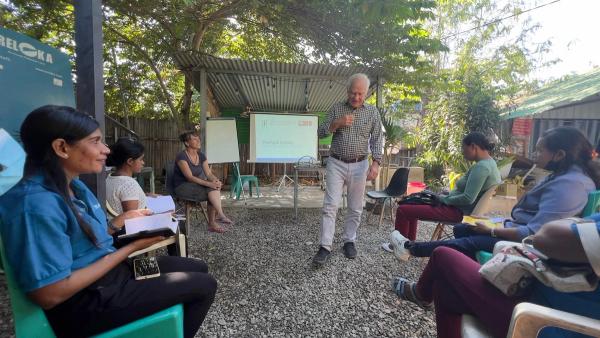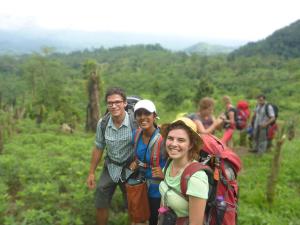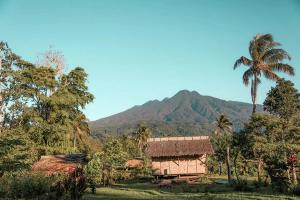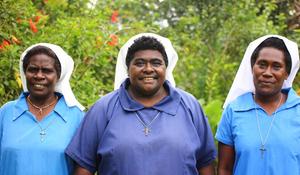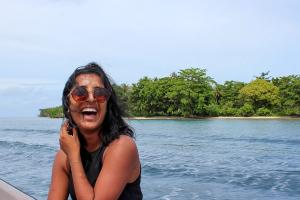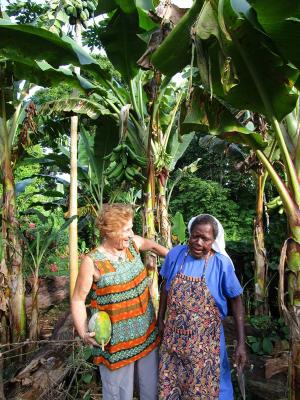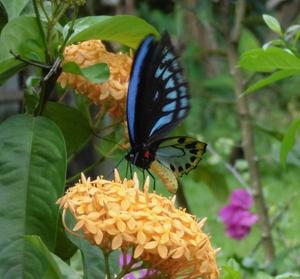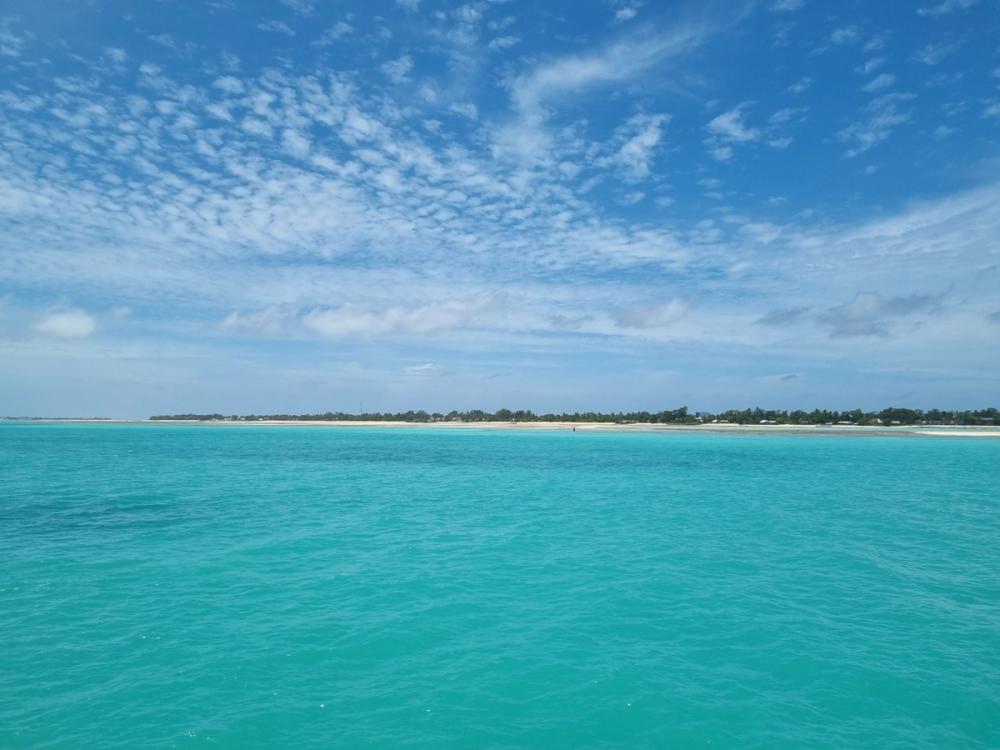

Kiribati
A nation on the frontline of climate change
The Republic of Kiribati (pronounced kee-ree-bus) is a Micronesian nation made up of 32 coral atolls and one raised phosphate island (Banaba), spanning across all four hemispheres. Its population of just under 120,000 is concentrated mainly in the capital, South Tarawa. With most land sitting only two metres above sea level, Kiribati is one of the world’s most vulnerable nations to climate change and rising sea levels.
Community life revolves around the mwaneaba — a traditional meeting house where decisions are made, stories are shared, and ceremonies are held. Despite modern development, Kiribati retains a strong sense of culture and oral tradition.
Our work in Kiribati
Since our first assignment in 1967, VSA has supported Kiribati’s development across education, governance, and economic sectors.
Today, our work aligns with government priorities, focusing on:
1
Tourism and fisheries development
Building sector capacity to support income generation, sustainability, and local employment.
2
English language and education support
Enhancing language instruction, resources, and capacity in schools and vocational institutions.
3
Climate resilience and environmental health
Supporting WASH (Water, Sanitation and Hygiene), waste management, food security, and nutrition in response to the deep interlinkages between health, environment, and climate change.
Economic context
Kiribati’s economy is shaped by its remote geography, limited land area, and dependence on marine and overseas resources.
- Fishing licenses, remittances, and aid are primary sources of revenue.
- Agriculture is minimal due to poor soil and water shortages.
- Climate change directly impacts infrastructure, food systems, and public health.
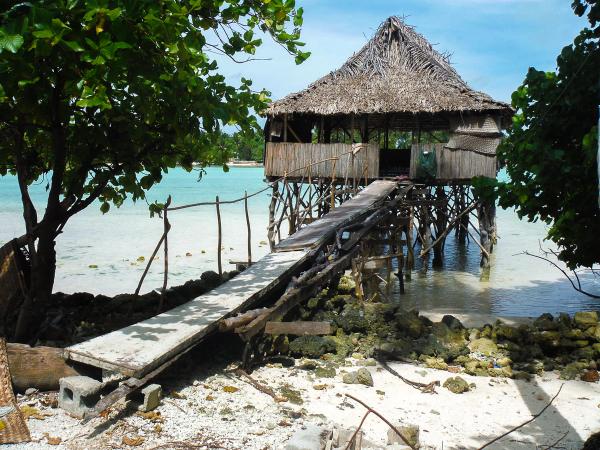

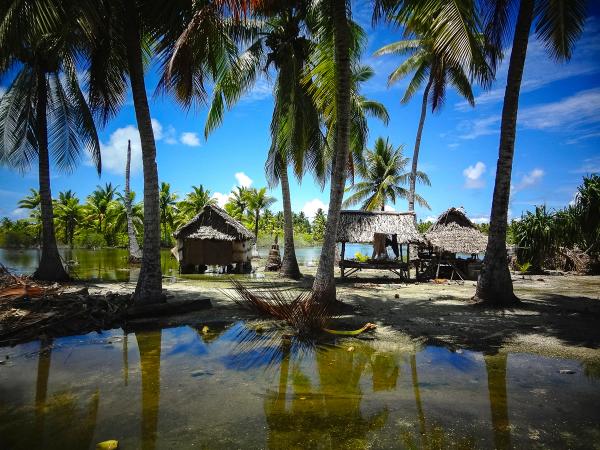

Development challenges
Kiribati’s key challenges include:
- Severe climate vulnerability and water scarcity
- Limited economic diversification
- High urban density in South Tarawa
- Food insecurity and nutritional deficiencies
- Waste management and sanitation system strain
VSA’s work supports locally driven solutions that strengthen community resilience and create long-term development pathways.
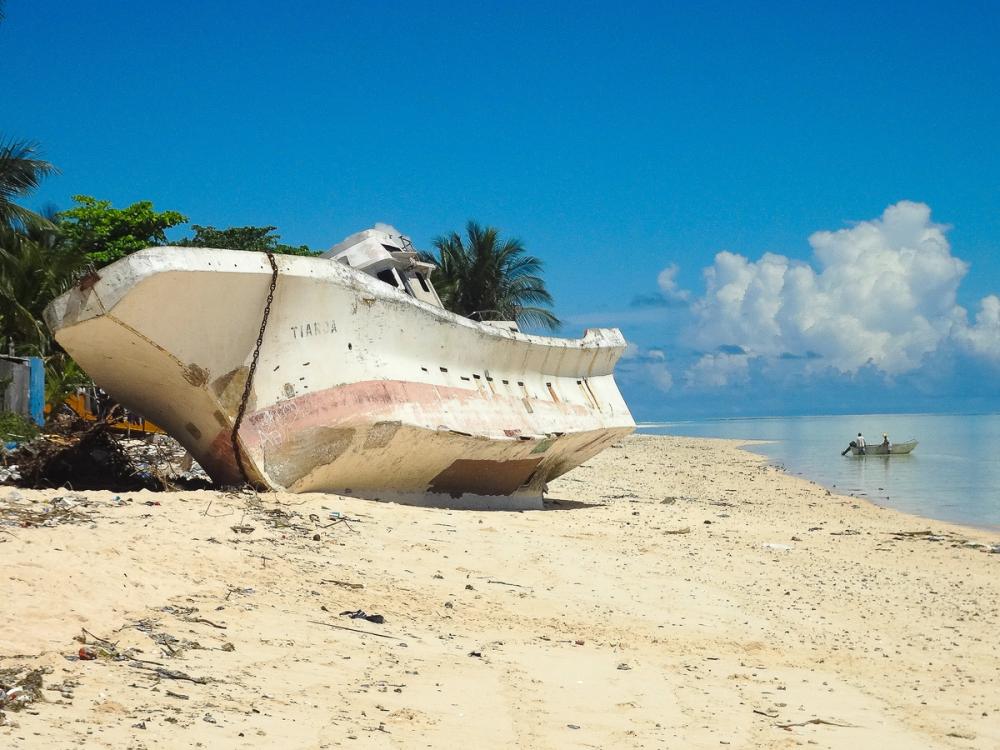

Things to consider when living and volunteering in Kiribati
1
Language and culture
English is sometimes spoken in Tarawa (less often in Kiritimati) and the language can be challenging. Learning some local words is important and is appreciated by the local community. On long-term assignments, we provide basic language training at the start of assignments with follow-ups if necessary during the assignment.
Kiribati has a strong oral history and culture and on every island you'll come across some families known for their story-telling skills. Most i-Kiribati believe their ancestors were spirits, some created in Samoa and others in Kiribati.
Kiribati has a strong oral storytelling tradition and deeply rooted spiritual beliefs. Understanding local customs and building respectful relationships will enhance your volunteering experience. Volunteers are welcomed warmly but are expected to behave with humility and cultural sensitivity.
2
Housing and living conditions
We provide volunteers with basic, furnished accommodation. Kiribati has 24-hour power (through a diesel generator) although power outages are a regular occurrence. Volunteer housing has gas facilities for cooking. Kiribati has the same electrical plug socket and voltage as New Zealand. All water should be boiled or purified for consumption and volunteers are advised not to drink well water. Water bottles can be purchased for general consumption from stores in town.
There are many stray dogs in Kiribati and we recommend volunteers take care when around them. Volunteers are not advised to walk around in the evenings alone.
Kiribati shares New Zealand's voltage and plug type. Stray dogs are common; care should be taken when walking, especially at night, which is discouraged.
3
Dress standards
We encourage our volunteers to dress conservatively. Loose fitting, light, cotton clothing is best. Dresses, skirts and t-shirts are commonly worn (sleeveless is acceptable) but don't expose skin above the knee, especially when attending traditional events. For men, choose long pants, knee-length shorts and short-sleeved shirts.
Use insect repellent and protective clothing to guard against mosquito bites. Skin infections can develop quickly, so it is important to bring a personal supply of plasters, antibiotic creams, and other first-aid items.
All volunteers receive a comprehensive safety briefing prior to departure and on arrival.
4
Safety
We provide all volunteers with a thorough security briefing prior to departure and specific local issues are covered during your in-country orientation.
5
Health
Precautionary measures are recommended, such as insect repellent and long sleeves/ trousers in the evening if outside and a mosquito net if you are staying in villages. Skin infections can develop quickly so keep a good supply of plasters, antibiotic cream and antibiotics. There is one main hospital on Tarawa and a private hospital with a general practitioner (GP) at The Marine Training Centre (MTC) in Betio. Volunteers are advised to use this GP. You are responsible for managing your own health while on assignment.
6
Banking and finances
Kiribati uses the Australian dollar (AUD). The ANZ Bank is the only international banking company in Kiribati with operating branches on South Tarawa and Kiritimati Island. On South Tarawa, ATMs are accessible at Betio, Bairiki, Bikenibeu ANZ bank branches and at the gate of Tungaru Central Hospital in Nawerewere. A visitor may carry up to $5000 cash when traveling to Kiribati. Major foreign currencies can be exchanged at the ANZ Bank. VISA & Master Cards are currently the only major credit cards accepted in Kiribati, but you won’t be able to use credit cards on outer islands.
There is one main bank in Kiribati (ANZ) with services available on South Tarawa and Kiritimati Island. Money transfers are possible between Outer Islands.
Volunteers are advised to bring sufficient cash for their first month. Most international credit cards (VISA and Mastercard) are accepted in South Tarawa but are rarely usable in the outer islands.
7
Communications and connectivity
Internet and telecommunication services in Kiribati are generally good with 4G coverage in most parts of South Tarawa. There are two main mobile network service providers with several smaller internet service providers. Coverage includes the outer Islands. International connections are usually reliable. Subscribing to a plan or bundle is a good way to use the different services and maximise value-for-money. There is a pay TV service providing local and international content.
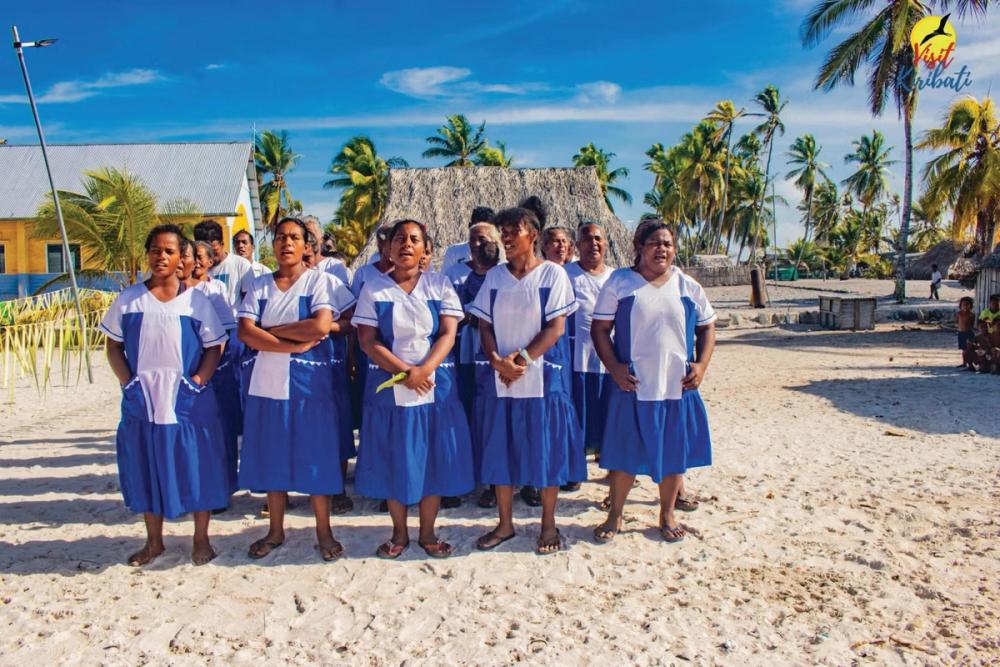

The Mauri Way
Open positions
Let’s work together to create meaningful change.
Want to become a partner?
We work in partnership with government agencies, NGOs, and community groups to share skills, strengthen systems, and support locally driven development.
If your organisation could benefit from volunteer expertise in areas like education, health, agriculture, governance, or climate resilience—we’d love to hear from you.
